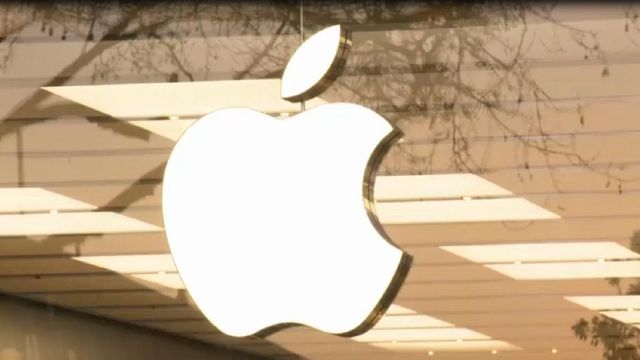NC officials surprised by Apple announcement
Gov. Roy Cooper's administration is largely silent on losing out. High-ranking officials say they found out via middle-of-the-night news release, like everyone else.
Posted — UpdatedHours after the announcement was official, high-ranking legislative officials, including House Speaker Tim Moore and Senate President Pro Tem Phil Berger, said they hadn't heard from the company,and that they learned of its decision the same way the public did: Via news release or the media coverage that followed.
Berger, R-Rockingham, said that, when he spoke to Gov. Roy Cooper's deputy chief of staff early Thursday, his understanding was the administration heard the news the same way.
Members of the Cooper Administration, including in the state's economic development arm, either declined to comment on the decision or did not return messages for hours Thursday. Wake County officials, who had hoped to see an expansion at Research Triangle Park, said they didn't get a heads-up before the company's press release hit around 4 a.m. eastern time. The Greater Raleigh Chamber of Commerce said it had no information to share.
The governor himself, at a separate economic development event after 9 a.m., said his people were still trying to figure out what Apple's decision means and whether North Carolina could still be in the running for something else. There was little indication that had changed by day's end.
"We want all these companies to come to North Carolina and to expand, and we aim high," Cooper said Thursday morning. "Sometimes you're not going to get all of the companies that you court, but I do know that North Carolina is a top place to come, and we'll see exactly where we are with this project."
Apple's news release referenced "the potential for additional expansion elsewhere in the U.S. over time," giving some reason for hope. But it mentioned half a dozen other cities by name where expansions are planned in addition to Austin, with no mention of North Carolina beyond a reminder of already announced plans to expand its data center in Maiden.
A circle on a map Apple included with the announcement indicated the company expects to have 200 to 500 jobs in the state by 2022. Apple's North Carolina data center already employs about 400 people, according to published reports.
Cooper, Berger and Moore issued a joint statement Thursday afternoon extolling North Carolina's qualities and other corporate recruitment efforts, but giving no information on why Apple went another way.
"We’re on pace to add thousands of good-paying jobs this year with more expected next year," the trio said in their statement. "There’s no better place to find a top-tier IT workforce and legislative leaders have worked closely with the administration to attract large employers and technology companies like Apple. We’ll keep doing everything we can to bring more good jobs to North Carolina.”
"Everybody is shocked," House Rules Chairman David Lewis said Thursday morning, "and very disappointed.”
Berger had cautioned against expectations in May, when WRAL News and others reported that the state was close to finalizing a deal with the company.
"If anonymous sources were accurate, North Carolina today would have four automobile manufacturing facilities," he said at the time. "I would suggest that there were stray cats that got out of bags before."
House Appropriations Chairman Nelson Dollar said Thursday that he felt Austin's size helped it win out over Raleigh, although both metro areas have roughly 2 million people.
"In the past, North Carolina was not in the running for these kinds of projects," he said. "North Carolina is now in the running for these projects, and as the Raleigh-Durham-Chapel Hill area – Triangle area – continues to grow, as Charlotte continues to grow, you’ll see these projects beginning to come here that are currently going to other areas of the country, really based on population."
Moore, R-Cleveland, also hit on the state's other recruiting successes in his remarks and the state's strong economy and said he knows "for a fact" of "a number of other large companies looking at North Carolina right now." Moore said the House he leads will keep working with the state Senate and the governor to pitch the state.
"You can't get every one that you want, but you keep trying and you move on to the next company," he said. "I know for a fact there are a number of other large companies looking at North Carolina actively right now. They tell us that they like our tax environment, they like our regulatory environment, they like our workforce, they like our education – they like the things that we’re doing."
Rep, Michey Michaux, D-Durham, suggested "the attitude" of North Carolina legislative leaders that has resulted in court fights over voting rights and transgender bathroom access might have turned off Apple.
"With the atmosphere that’s been created in the past, like House Bill 2 and its likeness thereof, and some attitude displayed, particularly by the other side, I think they had second thoughts about it," Michaux said. "It doesn’t surprise me that we’re in a redemptive mood now, trying to redeem ourselves in the eyes of the rest of the nation."
Moore dismissed that argument, noting that House Bill 2 was repealed almost two years ago.
"When I talk to companies looking at North Carolina, they’re not worrying about political or social issues. They’re here to make a business decision," he said.
Related Topics
• Credits
Copyright 2024 by Capitol Broadcasting Company. All rights reserved. This material may not be published, broadcast, rewritten or redistributed.





